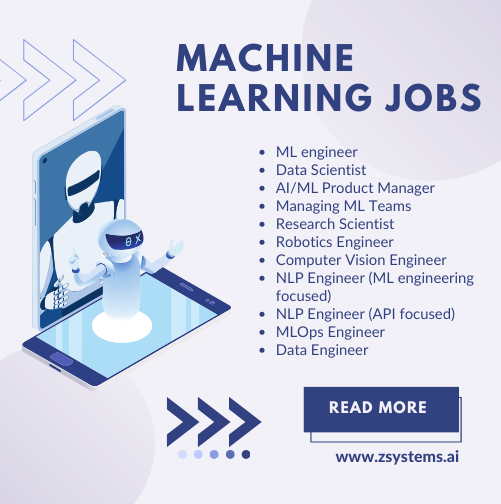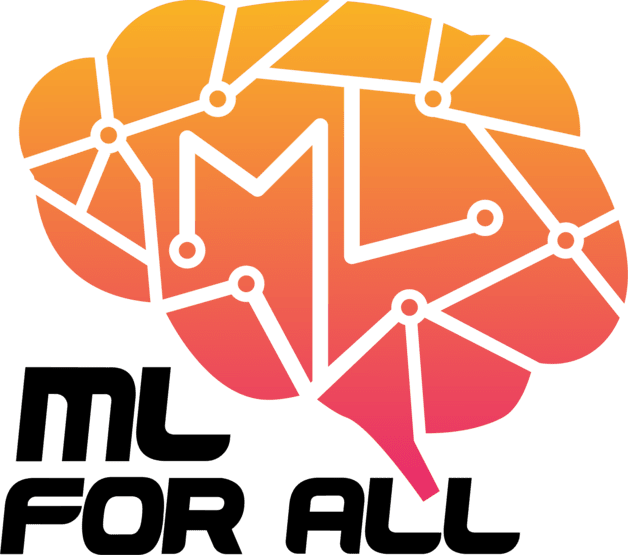
Register Your Details
ML engineer:
- Responsibilities:
Design and implement machine learning applications and systems. This involves creating algorithms, experimenting with models, and deploying ML solutions into production environments. - Skills: Python, ML frameworks (TensorFlow, PyTorch, Scikit-learn), model deployment.
- Education: Bachelor’s, Master’s and PhD preferred
Data Scientist:
- Responsibilities:
Analyze and interpret complex data to help make informed decisions. This includes predictive modeling, statistical analysis, and using machine learning to extract insights from data. - Skills: Strong background in statistics, programming (Python, R), data visualization tools (Tableau, PowerBI), and ML libraries.
- Education: Bachelor’s, Master’s and PhD preferred
AI/ML Product Manager:
- Responsibilities:
Oversee the development and strategy of AI/ML-based products. This involves coordinating between the technical team and other departments, understanding market needs, and setting product vision. - Skills:
Strong technical background, understanding of AI/ML technologies, excellent project management skills, and the ability to translate complex concepts for non-technical stakeholders. - Education:
Bachelor’s degree in engineering. MBA can beneficial
Managing ML Teams:
- Responsibilities:
Lead and coordinate multidisciplinary ML teams to develop and implement machine learning solutions that align with business goals. This includes project management, setting strategic direction, facilitating collaboration across departments, and ensuring projects are delivered on time and within budget. - Skills:
Leadership and team management, foundational knowledge of AI/ML technologies, strong project management and communication skills, and the ability to bridge technical and business perspectives. - Education:
Bachelor’s degree in Computer Science, Data Science, or a related field. An advanced degree or MBA is advantageous.
Research Scientist:
- Responsibilities:
Conduct advanced research to develop new machine learning techniques and algorithms. This role often focuses on pushing the boundaries of AI and ML through experimentation and innovation. - Skills:
Deep understanding of machine learning, neural networks, and computational statistics. Publication record in peer-reviewed journals or conferences is often required. - Education:
Ph.D. in Computer Science, Machine Learning, Statistics, or a related field is highly preferred. A Master’s degree may be acceptable with significant relevant experience.
Robotics Engineer:
- Responsibilities: Design and build robots that use machine learning to perform tasks autonomously. This role combines aspects of mechanical, electrical, and software engineering.
- Skills: Knowledge of robotics software and hardware, programming skills (C++, Python), and experience with machine learning algorithms for robotics.
- Education: Bachelor’s or Master’s degree in Robotics, Mechanical Engineering, Electrical Engineering, Computer Science, or a related field. Advanced degrees are often preferred for more complex or research-focused roles.
Computer Vision Engineer:
- Responsibilities:
Develop applications and systems that can process, analyze, and make decisions based on visual data. Uses include facial recognition, image classification, and autonomous vehicles. - Skills:
Experience with computer vision libraries (OpenCV, TensorFlow Vision), understanding of image processing algorithms, and machine learning model development. - Education:
Bachelor’s degree in Computer Science, Electrical Engineering, Robotics, or a related field, with a focus on computer vision or image processing. A Master’s degree or Ph.D. is often preferred for roles involving advanced research or specialized applications.
NLP Engineer (ML engineering focused):
- Responsibilities:
Specialize in training or customizing pre-trained NLP models. This involves data preprocessing, model fine-tuning, evaluation, and deployment of models to production environments. - Skills:
Python, NLTK, spaCy, TensorFlow, or PyTorch, especially for model fine-tuning. - Model Deployment.
Skills in text cleaning, tokenization, and vectorization. Understanding of NLP-specific ML models. - Education:
Bachelor’s, Master’s and PhD preferred
NLP Engineer (API focused):
- Responsibilities:
Focus on developing NLP applications and services by leveraging high-level API frameworks like Langchain. This includes integrating NLP capabilities into applications, customizing user experiences, and ensuring the scalable deployment of NLP features. - Skills:
Prompt Engineering, RESTful APIs, Python, web development frameworks (Flask, Django), full-stack development, Basic knowledge of NLP. - Education:
Bachelor’s degree in Computer Science, Software Engineering, or a related field. Practical experience with API frameworks and application development is often prioritized over advanced degrees.
MLOps Engineer:
- Responsibilities:
Implement and manage the infrastructure and workflows for deploying, monitoring, and maintaining AI/ML models in production. This includes automating machine learning lifecycle processes and ensuring model reliability and scalability. - Skills:
Expertise in DevOps practices and tools, proficiency in containerization and orchestration technologies (e.g., Docker, Kubernetes), strong background in cloud computing platforms (AWS, Google Cloud, Azure), and knowledge of machine learning frameworks (TensorFlow, PyTorch). Ability to manage CI/CD pipelines for machine learning projects and ensure data security and compliance. - Education:
Bachelor’s degree in Computer Science, Information Technology, or related field. Certifications in cloud services, DevOps, or MLOps are advantageous.
Data Engineer:
- Responsibilities:
Build and maintain the infrastructure required for optimal extraction, transformation, and loading of data from various sources. Data engineers enable data scientists and ML engineers by preparing the data architecture. - Skills:
Strong programming skills (Python, Java, Scala), expertise in SQL and NoSQL databases, experience with big data tools (Hadoop, Spark, Kafka), knowledge of data warehousing solutions, and familiarity with cloud services (AWS, Google Cloud, Azure). Proficiency in building and optimizing ‘big data’ data pipelines, architectures, and data sets. - Education:
Bachelor’s degree in Computer Science, Engineering, or related field. Advanced degrees or certifications in data engineering, big data analytics, or related fields are beneficial.
